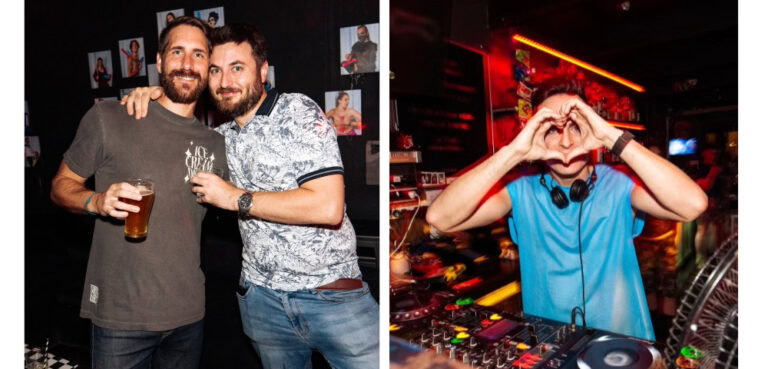
Taking a risk overseas
I am a senior court reporter and stenographer with the Supreme Court in Sydney and I have just returned from 18 months’ leave where I had a stint with the UN mandated Special Court for Sierra Leone, living in Freetown, Sierra Leone, West Africa.
I was working on the war crimes trials that eventuated after the 10-year civil war over there. Of course outside of work, I was living and mixing with the locals and, as a gay man, living and working in such a country posed tremendous risks.
But I was eager to suss out the local scene and managed to not only fall in love, but find a very small, discreet network of “family” over there, which of course turned out to be my saviour against the homophobia and discrimination I suffered in my work place.
It is still quite a dangerous country, but more so in country areas. However, I found it wasn’t as dangerous as people perceived it to be. The war is not over and the poverty is rife.
All the expatriates tend to stick together in Sierra Leone. And I didn’t like what I saw, in terms of the way they behaved. A lot of the diplomatic people were getting drunk and driving around and encouraging prostitution.
I did not want to be associated with that so I threw myself into the local culture. I knew before I went that the gay scene was very submerged. It is very taboo over there, and it took me months to break through anywhere, particularly because a couple of years ago the head of the Sierra Leone lesbian and gay association, a gay woman, was murdered.
I didn’t go to the beach bars where a lot of the white people or expatriates go, but instead mixed with the local community. It was very difficult at first because I couldn’t understand the language but, because I work in phonetics, I learnt one of the languages, Krio, quickly.
There were some people over there who were gay, and I did have some relations over there. But one gay person would never know about the other, it is so hidden.
The irony of it is that the men there are very tactile, they walk around holding hands and they hug each other and they are really affectionate with each other.
So it is very difficult, when they are holding your hand and they are sitting on the beach very close to you, to know if you are being cruised. It was very brave on my part to make the first move.
I actually met my partner in Sierra Leone, and I am in the process of trying to get his visa organised to bring him out here.
No one knows the situation between us, and in fact they don’t know that he is leaving to come out here. Jealousies could arise, and that could create problems because everybody wants to get out of Sierra Leone.
I am a very openly affectionate person, but you have to consider your security and safety at all times over there, so it was very difficult to be in a gay relationship.
I also experienced a lot of homophobia in my work place. Within the first five minutes of meeting my direct supervisor in Sierra Leone she made a comment to me in the presence of another court reporter. She said, “You do realise that homosexuality is illegal in this country. We have had problems with your type before.”
I took great offence to it and I lodged a complaint straight away. I instructed a solicitor and barrister in Sydney, so things got moving very quickly. There was an investigation and I was vindicated and she ended up resigning.
In all, it was such an enriching experience for me to be in touch with the local people of Sierra Leone. They are just so beautiful – they are so polite and so courteous.
I could put my wallet down, walk away and come back and it would still be there. The worst crime for people in Sierra Leone is theft. If you want to steal in Sierra Leone you have to be a good runner. Everybody just runs after the person, and sometimes that person will be killed.
I bought an acre of land over there, a beachfront, for US$1,000. I have left it in the care of the people over there so they can build a couple of huts. And I will go back every year with my partner, and we have got somewhere to stay.
As told to Cara Davis









